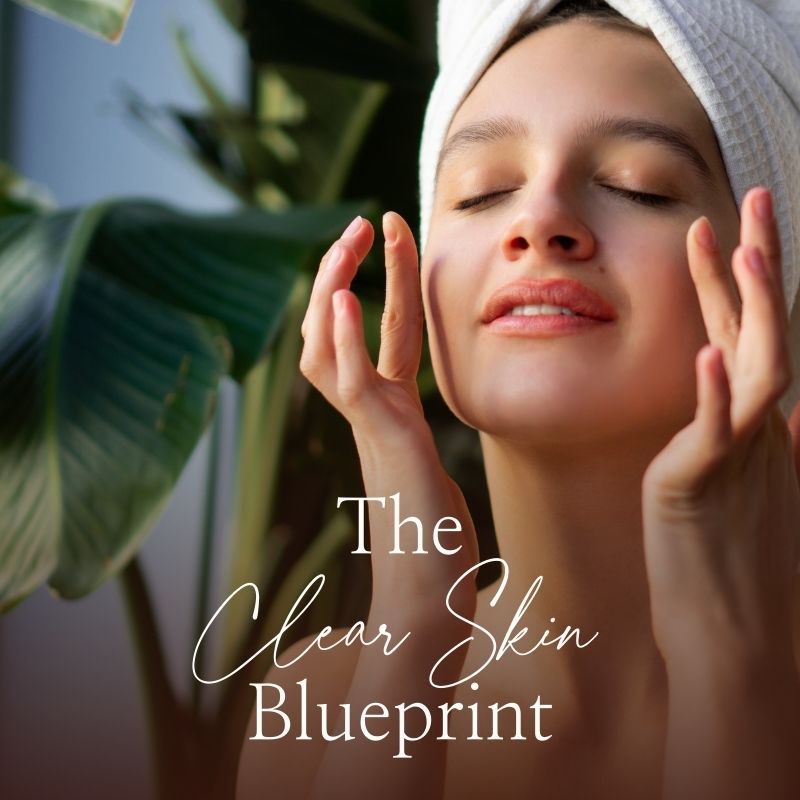Let me introduce you to your Skin’s Microbiome.
You might have heard the word ‘microbiome’ before – and probably assumed that one exists in the gut, and the gut only. You’d assume wrong (you know what they say about “when you assume…”).
Understanding the skin’s microbiome is key to maintaining a healthy, radiant complexion. This intricate ecosystem of microorganisms plays a pivotal role in skin health, influencing everything from hydration to immune function. Let’s delve into the skin’s microbiome, and how you can nurture it for optimal skin wellness.
What is the Skin’s Microbiome?
The skin’s microbiome refers to the diverse community of bacteria, fungi, and other microorganisms residing on the skin’s surface.
There are around 100 trillion bacteria in the human body, and 1 trillion of these exist in the skin. The skin is the body’s largest organ, and it is colonised by a diverse array of microorganisms – most of which are harmless, or even beneficial, to the skin’s health. These organisms form a symbiotic relationship with our skin, contributing to its health in various ways.
Not only does our skin protect our bodies by supplying an outer layer to our insides, but our skin also plays a role in our immunity. The skin’s immune response is vital in wound and infection healing, but it also helps to modulate its microbiome: beneficial bacteria can prevent the colonisation of harmful pathogens (aka bad guys) – as well as aid in the immune’s system defence against an overgrowth, or infection, of said pathogens. Despite constantly being exposed to so many microorganisms, the skin can distinguish between what’s harmless versus harmful, and deal with it accordingly.
But if it can’t deal with it properly? If the harmful outweighs the good? Several skin disorders, including eczema, acne and psoriasis, are partly a result of skin immune dysregulation.
Influencing the Health of Your Skin’s Microbiome
From the moment we enter the world, our skin is colonised. And, from there, the ‘colony’ on our skin (aka our skin’s microbiome) is shaped by our lives – factors like:
- our age
- where we live
- our levels of stress
- the hormones we produce
- our occupations
- the clothes we wear
- the products we use on the skin, and how often we use them
- the ultraviolet light we’re exposed to
- our stress levels
…and even the antibiotics we might use.

How to Support a Healthy Skin Microbiome
1. Support your gut
Heard of the gut-brain connection? The gut’s connected to just about everything in that bod of yours – including your skin.
Fill your gut with health: plenty of prebiotics (think fibre-full onion, garlic, leek, asparagus, artichoke, nuts + seeds), probiotics (a supplement and/or some kefir/kombucha/sauerkraut), and organic whole foods.
Happy gut = happy life. Skin included.
2. Probiotics
Following on nicely from my last point… Just like probiotics work for our insides, so too can they work wonders for our skin: from improving barrier function to reducing inflammation, and enhancing hydration and elasticity to minimising lines and wrinkles.
Probiotics are supplemental beneficial bacteria, designed to add more goodness to the microbiome. When selecting a probiotic, be sure to choose those with clinically proven strains for skin health – like Lactobacillus salivarius, plantarum, or paracasei – or, even better, speak to a qualified practitioner (like yours truly) to ensure they’re right for you specifically and that you’re getting the best bang for your buck.
3. Clean up your skincare
Instead of over-cleansing, over-doing the active ingredients, or going heavy on the antibacterial or sanitising skincare… Opt for mild, sulfate-free cleansers to avoid stripping away beneficial bacteria, and a fragrance-free, non-toxic moisturiser to support the health of your skin’s barrier. Oh, and don’t forget the SPF – a broad-spectrum sunscreen will help protect the skin microbiome from UV damage and disruption.
4. Sweat it out
If there’s some healthiness going on inside, there’s a good chance it’ll come through (like, literally. Through your pores in the form of sweat!). Healthy sweat will act as a bit of a prebiotic skin treatment. And – this goes without saying, but – working up a sweat with some regular exercise is generally wonderful for your health in sooooo many ways.
5. Stress less
Just like with our internal health, stress can negatively impact our skin’s health – even right down at the microbiome level. Take time regularly to work on managing your stress levels: whether it be a yoga or meditation class, practising mindfulness, journalling, a dip in the ocean, a hobby you love and enjoy, or seeking some extra support from a professional.
By understanding and nurturing your skin’s microbiome, you can achieve a healthier, more vibrant complexion. Remember, the goal is to support the natural balance of your skin’s ecosystem through gentle care, a balanced diet, and stress management.

The TL;DR Edit
What you need to know…
Your skin is home to a complex ecosystem of bacteria, fungi, and microorganisms that help protect, balance, and nourish it—this is your skin microbiome. When its delicate balance is disrupted (due to harsh skincare, antibiotics, or a poor diet, for example), it can lead to skin issues like acne, sensitivity, and inflammation.
To keep your skin’s microbiome happy, take care of your gut health, ditch the antibacterial overkill, opt for microbiome-friendly skincare, nourish from within with prebiotic and probiotic foods, get a healthy sweat on more often, and stress a heck of a lot less.
A thriving microbiome = healthier, clearer, and more resilient skin!



